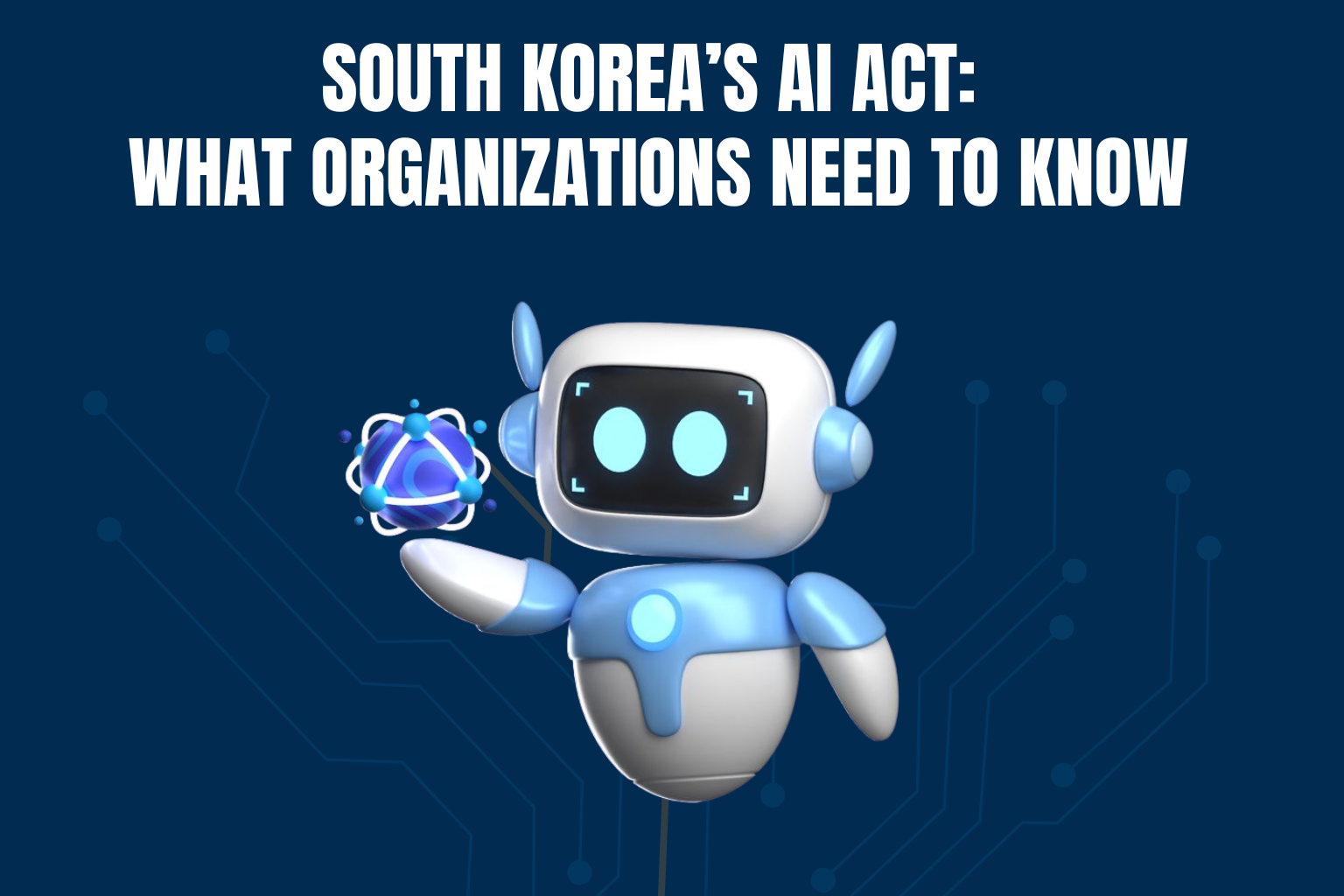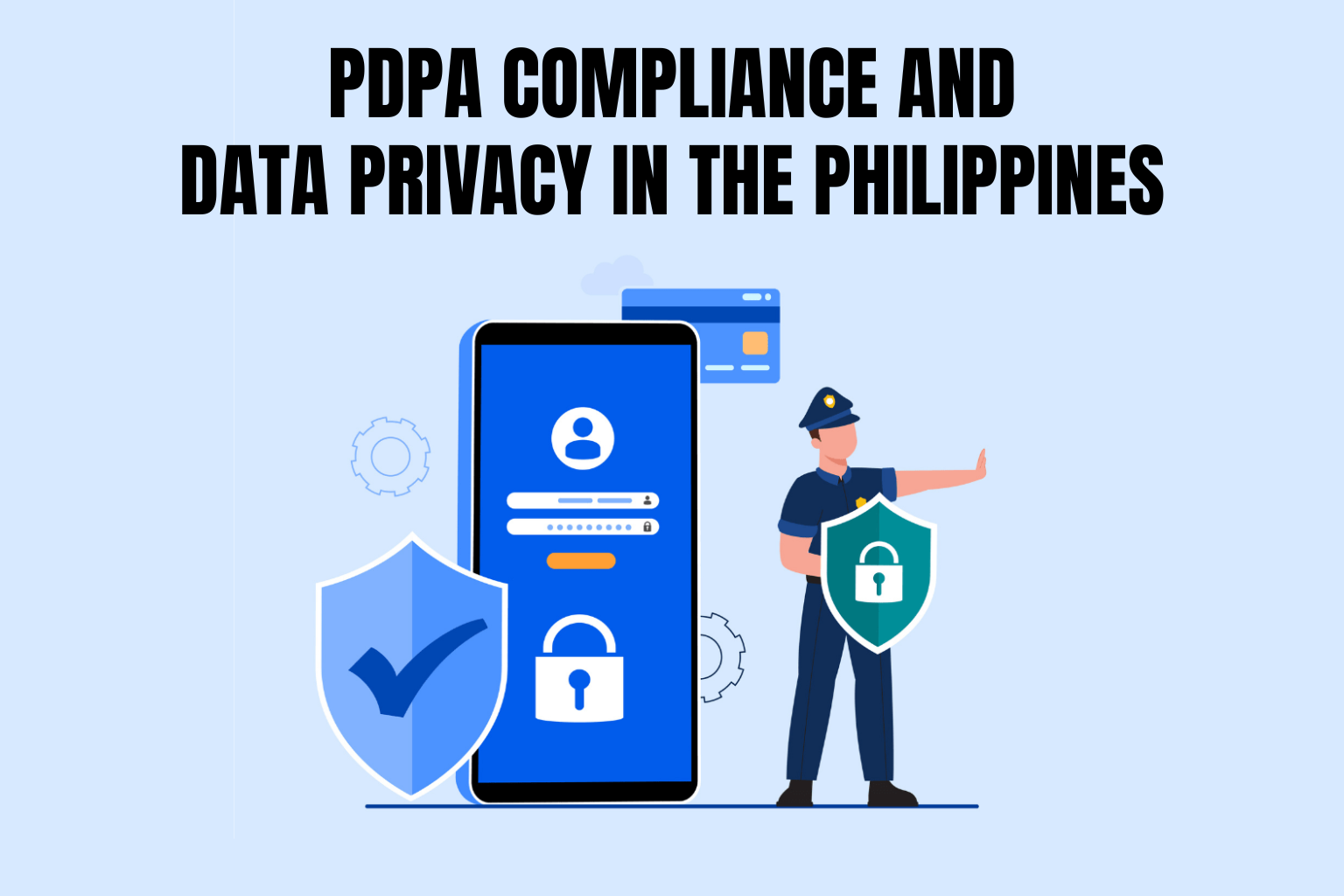
South Korea’s AI Act: What Organizations Need to Know
On January 21, 2025, South Korea enacted the Basic Act on Artificial Intelligence and Creation of a Trust Base, marking a major step toward structured AI governance. Set to take effect on January 22, 2026, the law establishes key definitions, development principles, and oversight requirements for high-impact AI systems. Its goal is to ensure AI technologies are developed safely, ethically, and transparently.
Key Highlights of the Act
Definitions
- AI is defined as the electronic implementation of human intellectual capabilities, including learning, reasoning, perception, and judgment.
- High-impact AI refers to systems with significant effects on human life, safety, or fundamental rights, such as those used in healthcare, hiring, loan screening, or biometric analysis.
- The Act also defines generative AI and AI business operators, providing a clear framework for governance.
Scope and Applicability
- The law applies to any AI activity impacting the South Korean market, whether developed domestically or internationally.
- Exemptions exist for AI used exclusively for national defense or security purposes.
Principles and Obligations
The Act emphasizes safety, reliability, and transparency:
- Users must be notified of high-impact or generative AI usage, with clear labeling of AI-generated content.
- Organizations are required to mitigate risks throughout the AI lifecycle, establish risk management systems, and maintain human oversight.
- High-impact AI operators must perform impact assessments on fundamental rights and document safety measures.
Enforcement and Penalties
- Violations can result in fines up to KRW 30 million (~$20,870) and potential imprisonment.
- Detailed implementation plans will be issued by the Ministry of Science and ICT.
What This Means for Organizations
South Korea’s AI law reflects a global shift toward stricter regulation. Companies leveraging AI must adapt quickly, balancing innovation with compliance. Redacto provides the tools and guidance needed to meet these requirements while building trust through ethical AI practices.
Steps to Prepare
1. Assess Your AI Systems
Organizations should review their AI systems to identify high-impact applications and conduct risk assessments, documenting measures to mitigate potential risks.
2. Enhance Transparency
Organizations should clearly label AI-generated content, especially for generative AI systems, to maintain transparency and user trust. Additionally, they should develop strategies to provide meaningful explanations of AI outputs, including the reasoning and criteria behind automated decisions, ensuring users understand how the system operates.
3. Implement a Risk Management Framework
Organizations should implement continuous risk management for all AI systems and maintain documentation of safety, reliability, and user protection for regulatory compliance.
4. Strengthen Oversight and Governance
Organizations should assign responsible personnel or a domestic representative to oversee compliance in South Korea and consider forming an autonomous AI ethics committee to guide ethical practices and ensure regulatory adherence.
5. Stay Updated on Regulations
Organizations should monitor updates from the Ministry of Science and ICT, including new decrees, the Basic AI Plan, and AI ethics publications, and leverage AI governance solutions to maintain ongoing compliance as regulations evolve.
FAQs
1. Do all AI systems need an impact assessment?
Only high-impact AI systems that significantly affect human life, safety, or fundamental rights require formal impact assessments. Other AI systems should still undergo internal risk reviews to ensure ethical and safe use.
2. What is considered generative AI under the Act?
Generative AI includes systems that produce content, images, text, or other outputs without direct human input. Organizations must clearly label AI-generated outputs to maintain transparency and trust.
3. Who is responsible for compliance in South Korea?
Organizations must appoint a domestic representative or responsible officer to oversee compliance, maintain documentation, and coordinate with authorities.
4. Is human oversight required?
Yes, human oversight is mandatory for high-impact AI to ensure safety, reliability, and ethical operation.
5. Are there ongoing reporting obligations?
Companies must keep records of risk assessments, safety measures, and AI system operations for audits or regulatory reviews.




%20Redacto%20logo_New.png)
.jpg)







.jpg)